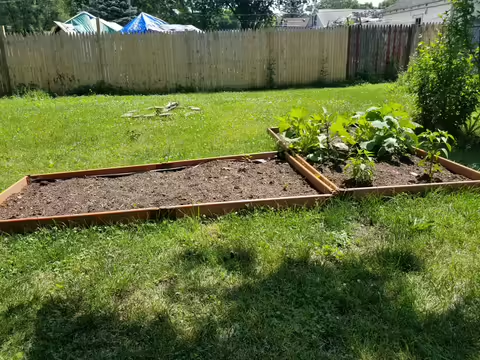URBANA, Ill. – Winter is a time for togetherness and rest before spring. It’s also a great time to look ahead and make plans for new garden ventures.
“A perennial fruit garden is a great project with years of benefits,” says Bruce Black, University of Illinois Extension horticulture educator. “Proper planning and set up can give you decades’ worth of fresh produce.”
Begin by looking at the landscape and deciding if and how much space is available for new additions. Tree fruit, such as apples, peaches, and cherries, need more space than small fruits, such as kiwis, strawberries, blackberries, and blueberries. Those with limited space can consider container fruits.
Next, consider the site. Fruit plantings prefer a full-sun, fertile location. Planting in an elevated or sloped site helps with water drainage and air circulation. A windbreak helps tree fruits in the winter and keeping out of low-laying areas helps to avoid frost pockets.
“Make sure you pick a convenient location close to a water source,” Black says. “If it is out of sight, gardeners may not prioritize its maintenance, or prefer not to walk to a distant site in the heat of the summer.”
Doing a soil test provides a baseline of nutrients and pH. Amendments can be made, as needed, for fruit crop varieties.
Avoid areas that may have had Verticillium wilt, a soilborne fungus that can affect more than 300 plant species. Verticillium wilt reduces fruit yields and, causes wilting, stunting, and killing of plants. Plants may be infected for a while before symptoms are visible. Try not to plant in areas where tomatoes, potatoes, peppers, melons, okra, beets, or roses have been planted within the last three to five years.
The final step in planning a fruit garden, is selecting plants. Cultivars should be adapted for USDA Zone 5, or colder, for Northern Illinois and Zone 6, or colder, for Southern Illinois. Look at local garden centers, nurseries, and national fruit stock retailers for cultivars and necessary cross-pollinator cultivars.
“While you are researching and planning, feel free to contact the Extension office in your county with any questions,” Black says. “Master Gardener volunteers and staff are happy to provide guidance and recommendations.”
For more information on fruit garden planting, including fruit-specific information and cultivar recommendations, check out University of Illinois Extension’s Small Fruit Crops for the Backyard website at web.extension.illinois.edu/fruit/index.cfm.
SOURCE: Bruce J. Black, Horticulture Educator, Illinois Extension
ABOUT EXTENSION: Illinois Extension leads public outreach for the University of Illinois by translating research into action plans that allow Illinois families, businesses, and communities to solve problems, make informed decisions, and adapt to changes and opportunities.
PHOTO ACCESS: The photo in this article is available to download for media use.
